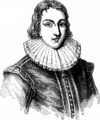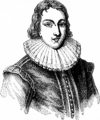Franz Kafka: A Journey into the Depths of the Human Psyche

Introduction:
Franz Kafka, a renowned figure of 20th-century literature, is celebrated for his enigmatic and thought-provoking narratives that delve into the complexities of human existence. His unique writing style captivated readers and continues to captivate generations, making him an indispensable figure in the literary canon. This article aims to provide a comprehensive insight into Kafka’s life, literary contributions, and the profound impact he has had on the world of literature.
A Brief Overview of Franz Kafka:

Franz Kafka was born on July 3, 1883, in Prague, a bustling city in the Austro-Hungarian Empire (now the Czech Republic). Raised in a middle-class Jewish family, Kafka was exposed to a culturally rich environment, which significantly influenced his perspective on life and art. Despite his professional pursuits as an insurance officer, Kafka never abandoned his passion for writing. His works explore themes of alienation, bureaucracy, and the existential angst of modern life, displaying a deep understanding of the human psyche.
Kafka’s Literary Evolution:
Kafka’s literary journey evolved over time as he grappled with his own personal struggles and experiences. In his early years, he dabbled in poetry and wrote short stories that showcased his poetic sensibilities. However, it was his three major novels, “The Trial,” “The Castle,” and “Amerika,” along with numerous shorter works, that cemented his reputation as an influential literary figure.
“The Trial” (1914-1915):
“The Trial” is perhaps Kafka’s most famous and perplexing work. It revolves around the protagonist, Josef K., who finds himself engulfed in an inexplicable judicial process without ever knowing the charges against him. The novel highlights Kafka’s preoccupation with the absurdity of bureaucracy and the powerlessness of the individual against an opaque and arbitrary system.
“The Castle” (1922):
In “The Castle,” Kafka delves into the existential struggles of his protagonist, K., who embarks on a futile quest to gain admittance into the mysterious Castle. The novel explores themes of isolation, futility, and the insurmountable barriers that exist between individuals and the social structures they inhabit. Kafka’s use of labyrinthine settings and relentless bureaucratic obstacles reflects his own personal battles with feeling out of place in society.
“Amerika” (1911-1912):
“Amerika” tells the story of a young protagonist, Karl Rossman, who is forced to leave Europe for America due to a scandal. This unfinished novel probes the concept of the American Dream and pokes holes in the idealized vision of the United States as a land of opportunity and freedom. Kafka’s exploration of identity and displacement resonates powerfully with readers, as it reflects the universal experience of feeling lost in an unfamiliar environment.
Kafka’s Influence and Legacy:
Despite Franz Kafka’s modest life and his lack of recognition during his lifetime, his works have had an enduring impact on literature and have shaped the genre known as Kafkaesque. His uniquely introspective and psychologically penetrating style has inspired countless writers and artists, leaving an indelible mark on the literary world.
Kafka’s influence is palpable in notable works such as Albert Camus’ “The Stranger” and Gabriel García Márquez’s “One Hundred Years of Solitude,” both of which exhibit Kafkaesque themes of alienation, absurdity, and the search for meaning in an incomprehensible world.
Conclusion:
Franz Kafka’s life and works continue to fascinate and intrigue readers worldwide. His exploration of the complexities of the human condition, the alienating nature of bureaucracy, and the futile pursuit of identity resonates strongly with individuals from all walks of life. Kafka’s legacy as one of the most important literary figures of the 20th century endures, inspiring generations of writers to explore the depths of the human psyche and challenge the established norms of storytelling. Kafka’s works provide a haunting and profound journey into the innermost recesses of the human mind, leaving an indelible mark on the literary landscape for years to come.
FAQ
What are Kafkas major works?
What is Kafkaesque?
Who was Franz Kafka?
Flere Nyheder
Erhvervsfotograf: En kunst i forretningslivet
Introduction: Franz Kafka, a renowned figure of 20th-century literature, is celebrated for his enigmatic and thought-provoking narratives that delve into the complexities of human existence. His unique writing style captivated readers and continues t...
04 juni 2025
Den moderne fotograf: Færdigheder, teknik og kreativitet
Introduction: Franz Kafka, a renowned figure of 20th-century literature, is celebrated for his enigmatic and thought-provoking narratives that delve into the complexities of human existence. His unique writing style captivated readers and continues t...
12 november 2024
Galleri Nordjylland: Et kunstnerisk epicenter i det danske landskab
Introduction: Franz Kafka, a renowned figure of 20th-century literature, is celebrated for his enigmatic and thought-provoking narratives that delve into the complexities of human existence. His unique writing style captivated readers and continues t...
10 juni 2024











